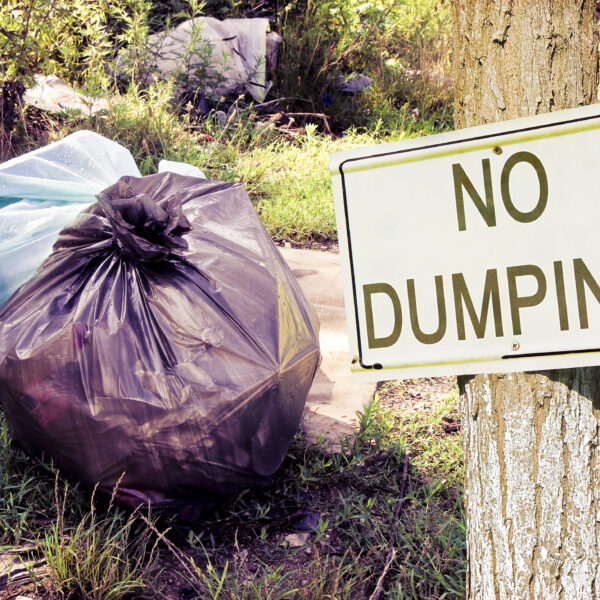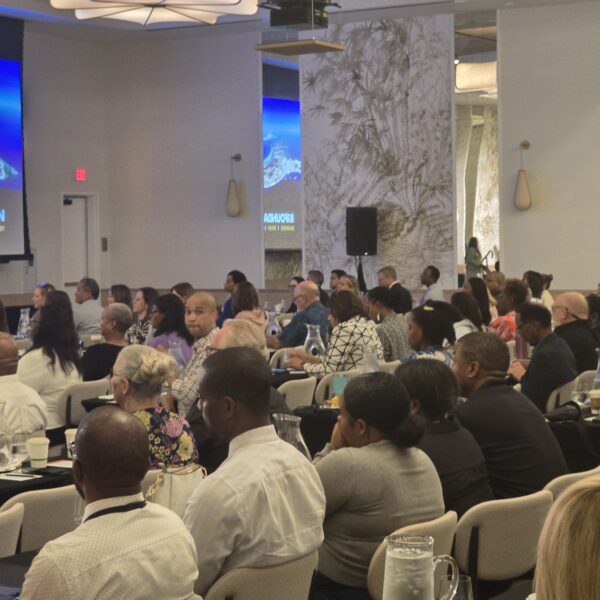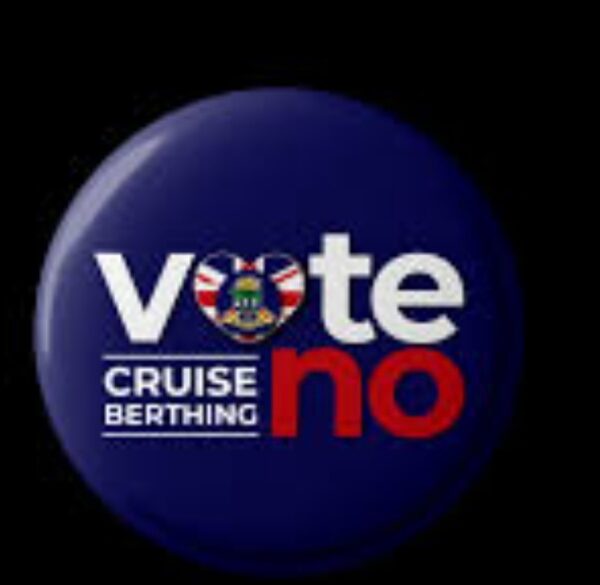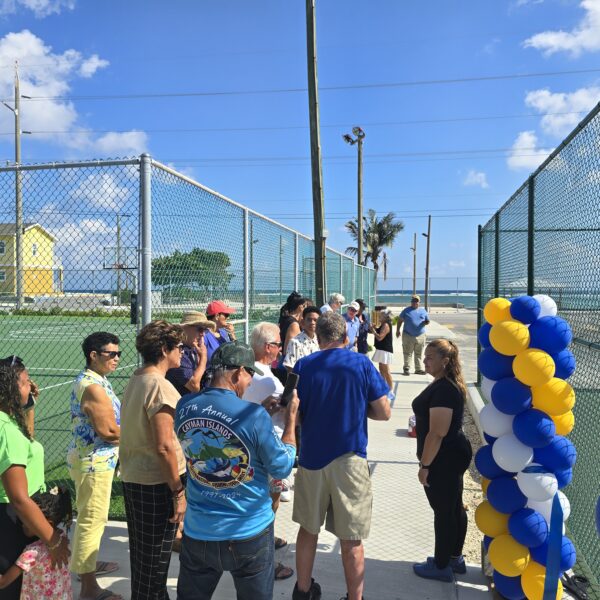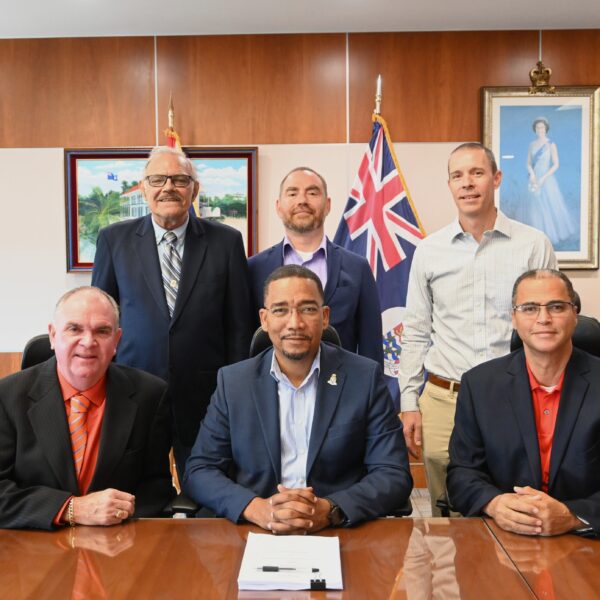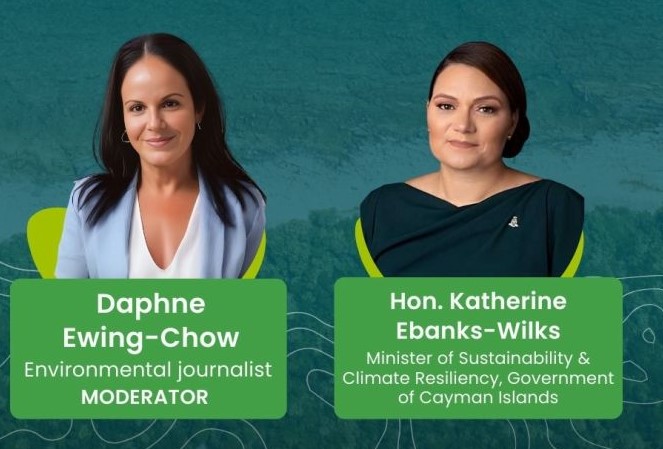
Daphne Ewing-Chow and Katherine Ebanks-Wilks (image source: Linkedin)
|
Getting your Trinity Audio player ready...
|
By Alric Lindsay
In a Fireside chat today, September 10, 2024, at the Virtual Island Summit 2024, senior Forbes journalist Daphne Ewing-Chow sat down with Cayman’s Minister of Sustainability, the Hon Katherine Ebanks-Wilks, to discuss Cayman’s energy journey and its National Energy Policy, including climate change. Ebanks-Wilks also offered advice to other small island states on the climate change journey and encouraged the incorporation of the youth in the discussion.
Explaining the journey, challenges and opportunities
As to the first question about the energy journey, Ewing-Chow asked Ebanks-Wilks to describe the sustainability challenges and opportunities that Cayman faces in the transition to renewables.
Ebanks-Wilks explained.
Well, like many of the island nations, the Cayman Islands are highly vulnerable to the impacts of climate change, and we have experienced several major storms over the years that have underscored just how much climate change affects our communities.
As a matter of fact, over the next few days, we are commemorating the, I guess you call it anniversary, 20 years since Hurricane Ivan hit the Cayman Islands. And it’s events like these that have brought significant challenges, but they’ve also opened up new opportunities for us here.
And since the introduction of our national energy policy in 2017, we have seen a shift in the public’s perception of renewable energy and environmental sustainability. And while our current renewable energy uptake stands at only 3%,, I’m encouraged by how actively our residents are engaging in the conversation and also supporting the transition.
Ebanks-Wilks added:
And I guess one of the key factors or challenges that we face, like most small islands, is limited land space.
However, we’ve turned this into an opportunity by exploring innovative solutions that allow for more rooftop solar installations, which make the most of available space that we have by using buildings.
And we recently added a 20 megawatt battery storage energy system to our grid.
And then we’re also working on energy efficiency measures across various sectors. Some of them include buildings, communities and transportation to, I guess, essentially reduce overall energy consumption.
She continued:
The Cayman Islands currently relies heavily on imported fossil fuels, which impacts electricity, water, transport, and therefore it makes us vulnerable to global oil price fluctuations. And our tropical climate also drives up energy demand, particularly for air conditioning. I mean, any of you that are online here from the Caribbean, you know, it’s hot and so, you know, keeping your homes cold keep can be very costly.
And these factors create both financial as well as technical challenges. But, you know, we’re head on and what we’ve done is we’ve launched public awareness campaigns and we’re securing funding through international partnerships such as the UK government’s Green overseas program, as well as. Not sure if many of you have heard about the EU’s Resembid initiative, but these collaborations provide us here in the Cayman Islands with the resources and expertise needed for us to move the needle forward.
We’ve trained public sector facility managers as well in the energy audit process and empowered our residents with tools for our DIY energy audits.
She concluded:
But in addition to our concerted domestic efforts, the Cayman Islands really benefit from the invaluable access to technical expertise, financial support, and also international partnerships, which are facilitated by our status as a British Overseas Territory. I was just going to say, through those efforts, you know, and in the partnerships that we do have, you know, it gives us confidence in our ability to really advance our renewable energy goals forward. Even though, yes, we do have challenges, you know, we’re going to look at it from the positive standpoint on all of the benefits and resources that have been afforded to us.
Success in setting targets for renewables
As a second question, Ewing-Chow asked Ebanks-Wilks to provide information on the targets for renewables in the Cayman Islands’ National Energy Policy.
Ebanks-Wilks said:
So you were asking a bit about our policy, you know, the targets. And one of the things that the updated policy sets out is it also has a strategic interim target of 30% renewables by 2030. And like you said, some may say that, you know, the targets are aggressive, but bold steps are really needed to keep pace with the rest of the world on the renewable energy journey.
She added:
And it also demonstrates that the Cayman Islands government is committed to tackling climate change, not only for our people, but also for our neighbouring Caribbean islands, as well as the rest of the world.
And the new implementation plan outlines a series of strategic initiatives which are slated for execution over the next five years. And these initiatives are all aimed at bolstering our progression towards achieving 100% renewable energy penetration by 2045. And these priorities encompass various facets, each designed to propel us closer to our ultimate goal. So, like they say, you know, aim for the stars. So that’s what we’re doing here.
Example of energy programs: Cayman Home Energy Efficiency Retrofits
Next, Ewing-Chow asked Ebanks-Wilks about the Cayman Home Energy Efficiency Retrofits (CHEER) program and how it helps foster socioeconomic stability within the Cayman Islands in this progress towards energy efficiency and renewables.
Ebanks-Wilks explained:
The national energy policy has four main goals. One, knowledge and education. The second is becoming a destination of excellence. Three, energy security. And as you mentioned, Daphne, socioeconomic and environmental sustainability, which is, you know, it focuses on sustainability, which is critical to ensuring that cost effective and sustainable energy is indeed available to everybody, all the residents here in the Cayman Islands. And as a part of this commitment, we did launch the Cayman Home Energy Efficiency Retrofits.
She added:
[CHEER] [was] launched in July of 2023. And this initiative provides energy efficiency retrofits to homes, which assists Caymanian homeowners by allowing them to save on their energy bills.
So far… we’ve dealt with… approximately 29 homes, which we have selected for retrofits, with a particular focus on insulating the homes and upgrading them to newer, higher SEER rated air conditioner units. And the feedback from the homeowners has been overwhelmingly positive.
She continued:
Many of them have shared how they’re already noticing a difference in their homes, better sleep, and we’re excited to continue working with these homeowners.
We also will be following up to monitor on how these changes have impacted their energy charges with their bills. And this program, the CHEER program, is just one of the ways that we are working to make energy efficiency accessible to everyone. It helps to support both social and the economic sustainability in our community.
She concluded:
And it’s targeted primarily to members of our society who would be deemed as vulnerable. So the individuals that we’ve targeted have been the elderly, persons with disabilities, people with young children, and also, you know, just those who are, you know, on a lower salary scale that are having difficulty with not being able to afford to pay their electricity bills.
Lessons learned from CHEER and keeping people at the centre of policymaking
Speaking about lessons learned from the CHEER program and that could be applied to future programs, Ebanks-Wilks said:
Yeah. What we did learn is that through the initial implementation of CHEER, is that there is definitely a desire and an appetite among the community to engage in energy efficient modifications.
And we’re also having the benefit of seeing the importance of community engagement and the need for tailored solution for different households. You know, every home is built differently.
We’re also learning to consider, you know, building homes sustainably from the beginning. So, getting this information out to new homeowners so that they don’t have the cost of having to make these changes after the fact, which makes efficiency a little bit harder to achieve. And these insights continue to guide the expansion of our energy efficiency incentives and the development of what we hope to see more inclusive programs in the near future.
Partnering with utility companies on Cayman’s energy journey
Ewing-Chow then touched on how Ebanks-Wilks felt the Government was doing in terms of managing its relationship with utility companies.
Ebanks-Wilks said:
Actually here in the Cayman Islands, you know, one of the things that we do have is we have the benefit of having utility providers that understand the importance of our need to transition to renewable energy and also the benefits that it will have to our islands. And they too have had their own ambitious commitments in line with the policy.
And in terms of our utility providers, you know, we have, I guess, developed a relationship with our provider, the energy providers, and our regulator.
She added:
And so in addition to amending or updating the policy, the implementation committee encompasses collaboration with the regulator, the utility provider, as well as the ministry. And so, you know, we know each stakeholder has challenges, but by taking a collaborative approach, we will continue to work together as one team because, you know, we all have the same objective and we will lean in, you know, I guess, with each other to look for new opportunities and solutions to hopefully make the lives of our people better. That’s great.
Partnering with and engaging Cayman’s youth
Moving on to the youth as stakeholders in Cayman’s energy journey, Ewing-Chow queried how the Ministry of Sustainability engages with and educates the younger generation about the importance of energy sustainability and their role within the national energy policy.
Ebanks-Wilks explained:
Well, I think that’s the question of the day, Daphne, is how do we engage with our youth? Because, you know, their platforms are, they’re also ever evolving. So tapping in to ensure that we are, you know, really engaged with what the next generation is focusing on. And that should be something that every government should prioritize. And so our transition to renewable energy is an incredible opportunity for all Cayman residents, but especially our youth, to pave a way for them to have a more sustainable, resilient, and, of course, prosperous future. And I am so excited because the young people here in the Cayman Islands are very vocal, very engaged, and they certainly share their feedback with the ministry and the ministry team. And, you know, we want to build a future where Caymanians can spend their hard earned money on what truly matters to them and their families. And I’m sure the cost of electricity isn’t just expensive in the Cayman Islands, it’s throughout the Caribbean.
She added:
And for us, we want to make sure that our local residents are not working just to pay electricity bills. And by embracing renewable energy, we are also securing a stable energy future and opening up new job opportunities. You know, I think that that is something that our younger generation is certainly excited and passionate about. And the policies, goals, particularly in knowledge and education, and also becoming a destination of excellence. It emphasizes the importance of teaching our youth about sustainability and then again, leaning in on them, our, you know, our leaders in this area. And so for us to achieve this, I think it’s critical for us to try to find ways to engage with younger Caymanians. What the ministry has been doing is we’ve been doing school programs. You know, we’ve been getting into the schools and doing planting initiatives just to get information out to the children while they’re, you know, fairly young.
She concluded:
Also interactive workshops and then, you know, just trying to partner with some of the educational institutions to just forge relationships from now, even sports, we’ve, you know, recently just sponsored a few sporting events so that we can have just a few minutes during intermission to share a little bit about how important sustainability is, and we believe that educating and empowering our youth is really the key to making a lasting progress in our journey to what I think all of us are here about today, which is to get to that place of progressing, you know, sustainably.
Developing partnerships with others in the region
Moving onto opportunities for other partnerships, including investors outside the Cayman Islands, Ewing-Chow asked Ebanks-Wilks how they could get involved in Cayman’s energy journey.
Ebans-Wilks explained:
Well, I do hope that we have some of those individuals on watching today, Daphne, because private investment is going to be absolutely essential to assist us with achieving our renewable energy goals.
And our regulator, it’s the Utility Regulation and Competition Office, is responsible for managing the bids for utility scale renewable energy projects.
OfReg ensures that the bidding process is transparent with all of the details published on their website. And in addition to that, the Cayman Islands government has a unit procurement unit. And so in addition to OfReg posting it on their site, the procurement unit has this information on their platform as well. So this will allow any interested person the access to the information that would be required in terms of making any decisions for future investments.
She added: “For any private investors and stakeholders just inviting you to explore these opportunities and become active partners in Cayman’s renewable energy transition, we need you.”
Suggestions for other small island nations when starting their renewables journey
Given all the lessons learned, including making the people the centre of policies and building relationships with utility companies and the regulator, Ewing-Chow asked Ebanks-Wilks what advice she would offer to other island nations that are going through a similar process of implementing energy-efficient programs.
Ebanks-Wilks responded:
I guess if I could give advice, my advice would be to other island nations is really just to focus on community engagement and get your people involved and make sure that their voices are heard. For example, here my ministry will be hosting a booth at a local builders expo this weekend.
And the purpose of that is just to share information about our energy efficiency projects and show people actual results of the impact of retrofitting homes with energy efficient materials. Because as we all know, you know, sometimes getting buy in is, as they say, seeing is believing. So being able to hear some, you know, real life stories. And another thing that has been critical for us with assisting us with rolling out some of these programs. Programs is ensuring that you secure diverse funding sources and then tailoring your programs to meet local needs. Because what we might need here in Cayman might be different from what grace needs in Jamaica. Every island is different. So being able to be flexible and not trying to take a cookie cutter approach, and then I guess the last thing I would say is just tap into our international partners, collaborate with them, and, you know, utilize the support and resources that they have available.
She concluded:
And, you know, I mean, I guess they say, you know, every little change makes a difference. So, you know, even small changes in how businesses and homes use energy can make a big difference. And so what we have is the ministry has an energy unit and they have created an energy audit. So that is free to anyone who would like to download an energy audit, you can find it at https://www.gov.ky/energy/resources/energy-audits
So, just those are a few things that may be useful if anyone would like to lean into what we’ve been doing.


